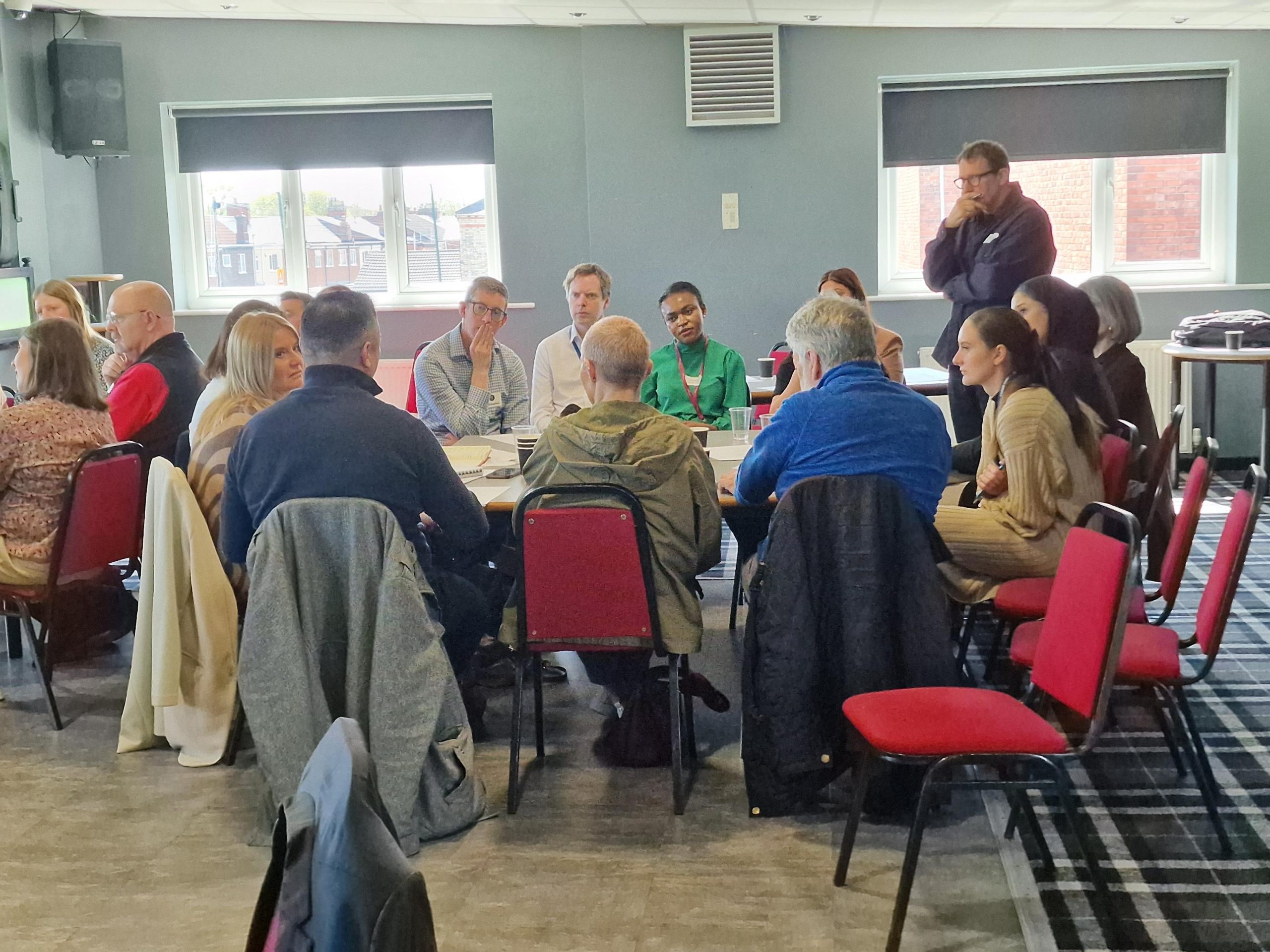Policy and Advocacy
What do we do?
Across the UK, cold homes are already damaging the lives of the poorest households. In October 2021, 4.5 million UK households were in fuel poverty. As of 1 July 2024, there are 5.6 million.
We fundamentally believe that it is not enough for us to help individuals to better afford energy. Structural change will be needed if we are to alleviate the impacts of fuel poverty for millions of households across the UK.
We primarily do this through our policy work, working with governments, parliaments, regulators businesses and civil society to ensure that better policy, regulatory and business decisions are made to the benefit of our beneficiaries. We evidence our advocacy with our experiences from helping individuals, aiming for structural change that will help millions. We firmly believe in the integration of our policy and practical work.

Everything we do, we do in partnership. This extends to our advocacy work. Our own work covers England, Wales, and Northern Ireland, so we work with our sister charity, Energy Action Scotland, to advocate for the needs of fuel poor households across the UK. We also work in broad coalitions to achieve our advocacy goals from our Business Supporters Group to our wider membership, to NGOs focusing on green issues to charities representing vulnerable groups. We believe that our collective voice is stronger.
We work closely with governments and parliaments across the UK. In Westminster, we provide the secretariat for the APPG Fuel Poverty and Energy Efficiency, and do the same for its sister cross-party group in the Welsh Senedd.
What have we achieved?

National Energy Action has countless achievements in its advocacy over the decades since its formation in 1981. In the early 2000s, we worked with David Amess to successfully steer his Private Members Bill, the ‘Warm Homes and Energy Conservation Act’ through UK parliament. This short but important piece of legislation places obligations on the parliaments of both England and Wales to introduce fuel poverty targets, with complementary strategies to meet the targets.
We subsequently worked with consecutive UK governments to ensure that such targets are legally binding. The latest iteration of such targets came in 2014, through ‘The Fuel Poverty (England) Regulations 2014’. This crucial legislation places a legal obligation on the Secretary of State for Energy to ensure that all low-income households reach EPC C by the end of 2030, as far as reasonably practicable.
We have also worked closely with governments to influence the creation and make-up of energy efficiency schemes, including Warm Front in the 2000s, the Energy Company Obligation, the Warm Homes Programme in Wales, and Affordable Warmth Scheme in Northern Ireland. Latterly, we successfully advocated for the inclusion of energy efficiency funding in all major party manifestos in the leadup to the 2019 election. This led to a ramp-up in spending on energy efficiency in the subsequent parliament.
More recently we have successfully campaigned for the prepayment meter premium to be removed so it is no longer the most expensive way to pay.
What are we campaigning for?
People – supporting fuel poor households through the energy crisis
The energy crisis is not over, and fuel poor households still need support to help them to afford energy on a day-to-day basis. Over the last two years, we have successfully campaigned for unprecedented levels of financial support for energy bills, but more needs to be done to help the poorest households pay their bills.
Homes – working towards a fair and affordable transition to net zero for fuel poor households
Our path to net zero is strongly linked to efforts to reduce fuel poverty. We cannot reach net zero without changing how each fuel poor home uses energy. And we firmly believe that the best, lasting way to alleviate fuel poverty is to insulate homes, a crucial element of our path to net zero. With that in mind, a fair and affordable transition to net zero is vital to our cause. We work to ensure that fuel poor households are early beneficiaries of the transition, through campaigning for grant schemes to help them upgrade their homes, and minimum energy efficiency standards for their landlords to meet. While there is significant opportunity, net zero also poses a potential threat to fuel poor households, especially if the costs of decarbonisation fall unfairly upon them. We, therefore, advocate for a fair allocation of these costs.
Markets – ensuring that energy markets are designed in a way that is favourable for fuel poor households
The energy market has changed rapidly over the last two years, firstly because of the Covid-19 pandemic and latterly because of the energy crisis. It will continue to change throughout this decade as a necessity because of our endeavours to reach net zero. We have been able to secure significant wins for fuel poor households through the latest period, eliminating the prepayment premium (and shifting £100m of costs away from fuel poor households in the process). But much more needs to be done. Energy remains unaffordable, and debt levels in the market are unsustainable. We campaign for a social tariff for energy, and a centrally run scheme to help indebted households more rapidly clear their energy debts.
Consultation responses
Click here to read our responses to government and Ofgem consultations.

